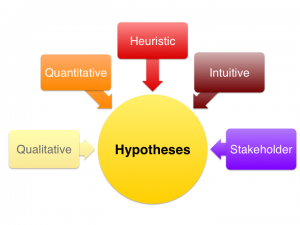As the testing and Conversion Optimization of websites becomes more widely accepted and practiced, the technologies that enable testing (A/B and Multivariate testing software) are getting better and cheaper. There is good competition in the testing tool market, so it’s a great time to be a company looking to start a formal testing and Optimization program.
 With all the choices for testing technology, a common mistake is for companies to simply buy/license a testing tool and assume that they can “handle” the needs of testing and be successful.
With all the choices for testing technology, a common mistake is for companies to simply buy/license a testing tool and assume that they can “handle” the needs of testing and be successful.
Many companies that go down this road fail after a short time due to the difficulties of setting up valid tests, getting measurable results, and coming up with new testing ideas. Even companies that are somewhat successful at taking on testing without any outside help tend to “plateau” after 6-12 months and aren’t able to get sustainably positive test results.
While I can understand a CMO’s desire to reap the touted rewards of Optimization “on the cheap,” this post will explain why you need staffed Optimization expertise to be successful in a formal testing program. Continue reading

 I recently read a fascinating paper written by some folks at Microsoft called “Online controlled Experiments at Large Scale.” Skip to the end if you want a link to the paper.
I recently read a fascinating paper written by some folks at Microsoft called “Online controlled Experiments at Large Scale.” Skip to the end if you want a link to the paper. One of the reasons that Optimization is difficult is because it’s extremely cross-discipline by nature. It’s part marketing, part user experience, part design, part analytics, part web development, and part statistics.
One of the reasons that Optimization is difficult is because it’s extremely cross-discipline by nature. It’s part marketing, part user experience, part design, part analytics, part web development, and part statistics. With all of the quality blogs devoted to Conversion Optimization tips and best practices, I’ve not come across any posts related to the different kinds of documents required to be successful in a conversion optimization and testing effort.
With all of the quality blogs devoted to Conversion Optimization tips and best practices, I’ve not come across any posts related to the different kinds of documents required to be successful in a conversion optimization and testing effort. I recently learned of a lovely new acronym that aptly describes the world of online marketing. It’s
I recently learned of a lovely new acronym that aptly describes the world of online marketing. It’s